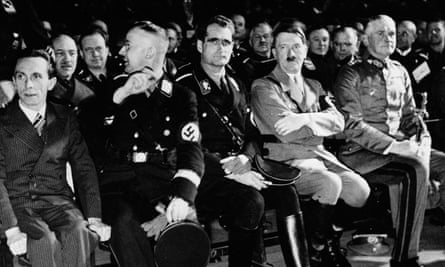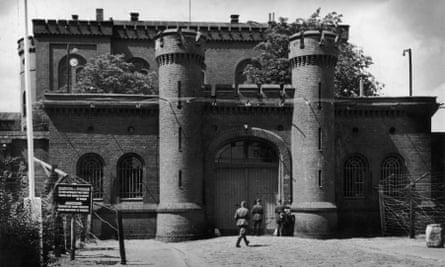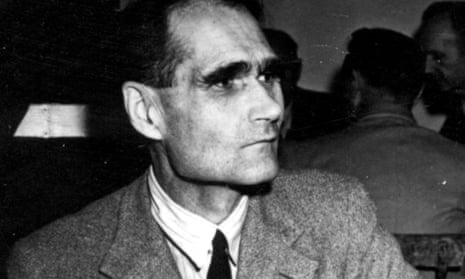The health of Rudolf Hess is considered of first importance by the British Government, Mr Wolf Hess, the Son of Hitler’s deputy, was told at the Foreign Office yesterday.
Mr Hess, aged 32, a bachelor and civil engineer from Munich, spent more than an hour with Mr George Thomson, Chancellor of the Duchy of Lancaster, to put the case for his father’s release from life imprisonment.
Rudolf Hess, who is 75, was moved from Spandau prison in West Berlin in November after 25 years of his sentence. He went to the British hospital in West Berlin, suffering from stomach ulcers.

Mr Hess said after the visit : “I have learnt that first consideration is his health, and that there must be negotiations for his release.” The release of Rudolf Hess – like all Berlin’s problems – depends on the cooperation of the four Allied Powers.
His wife and son visited him on Christmas Eve, having signed an undertaking with the four Powers in West Berlin that they would not talk about their visit. But Wolf Hess said yesterday: “I don’t know whether he knows what I am doing. But I don’t think he is likely to hear about it. He is allowed four newspapers, but everything concerning him or Spandau is cut out.”
On humanitarian grounds alone, he should be released – Mr Wolf Hess
More visits
Rudolf Hess refused to see his son when he was brought to him as a child during the Nuremberg war tribunals. Hess also refused to see his family during all the time he was in Spandau, saying that he wanted to be remembered as he was during his days in power. There were no visits until the one in hospital on Christmas Eve. Other visits – half an hour each month will follow, provided that Mr Hess and his mother discuss them with no one.
But the impact of the reunion was great enough for Mr Hess to set out on his campaign for his father’s freedom. “On humanitarian grounds alone, he should be released,” he said at an impromptu press conference outside the Foreign Office. “And now he is in hospital, on medical grounds as well.”
The chief support for the “release Hess” campaign in this country has come from Mr Airey Neave, Conservative MP for Abingdon, who also saw Mr Thomson yesterday. Mr Neave, who was a prisoner of war in Germany, was later the officer who served the war crimes indictment on Hess.

‘Satisfied’
He said afterwards that he was satisfied that the British Government wanted to release Hess. Mr Thomson, he said, had agreed with his suggestions that a German surgeon should make an independent examination of Hess and that Frau
Hess should be better informed about her husband’s condition.
“This has gone too far in human terms. It has become a rigamarole over Hess’s body,” said Mr Neave.
A Russian doctor has said that no operation is needed, but British, American, and French doctors have said that surgery may be necessary. Mr Neave believes that the Russian diagnosis was more political than medical, and wants Professor Rudolf Zenker, of Munich, to carry out the independent examination.
Troops from the four occupying powers take it in turns to guard Spandau, which until November had Hess as its only prisoner. With Hess now in hospital, the troops take month-long turns to guard 600 empty cells. But if some permanent decision is made to release Hess or keep him in hospital the Russians will no longer have a reason to guard Spandau – and would thus lose their only foothold in West Berlin.
Hess was acquitted of war crimes, but convicted of crimes against peace.
Rudolf Hess was never released from Spandau prison and died there, age 93, in 1987.

Comments (…)
Sign in or create your Guardian account to join the discussion